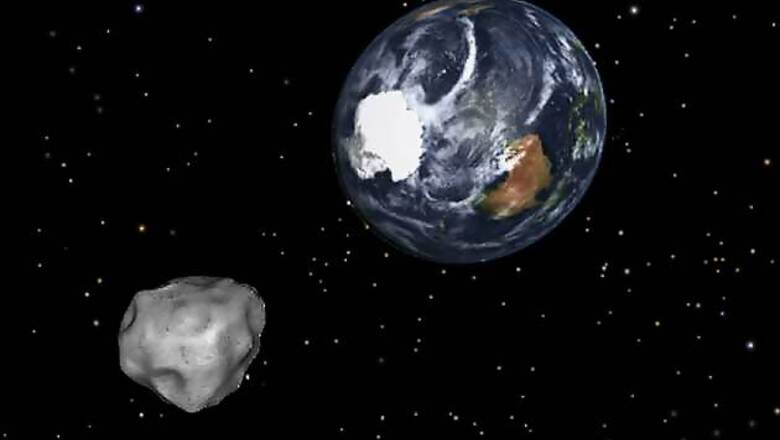
views
New York: Asteroids that pose a threat to Earth can be destroyed in space using a nuclear bomb, even with warning times of a week or less, scientists say.
"We have the solution, using our baseline concept, to be able to mitigate the asteroid-impact threat, with any range of warning," said Bong Wie, of Iowa State University.
Researchers are developing a concept spacecraft called the Hypervelocity Asteroid Intercept Vehicle, or HAIV.
The HAIV would rendezvous with an asteroid in deep space, then send a kinetic impactor barrelling into the object to blast out a crater, researchers said.
The nuclear bomb would follow one millisecond behind - perhaps attached via a long boom, or perhaps flying freely - and then detonate inside the hole, shattering the asteroid into millions of tiny pieces, 'SPACE.com' reported.
Excavating a crater for the bomb would increase its destructive power by a factor of 20, Wie said on February 6 at the 2014 NASA Innovative Advanced Concepts (NIAC) meeting at Stanford University.
Some of the resulting asteroid fragments may still impact Earth, depending on how far away from our planet the explosion occurred. But the effects are likely to be minimal, Wie said.
For example, a 1,000-foot-wide asteroid can be neutralised far outside Earth's gravitational field with a warning time of just 30 days, according to Wie.
Computer simulations suggest that less than 0.1 per cent of the destroyed object's mass would eventually strike our planet. Wie and his team suggest that the HAIV concept be coupled with an asteroid-warning system, such as the Asteroid Terrestrial-impact Last Alert System (ATLAS), a survey effort being led by the University of Hawaii with USD 5 million in NASA funding.
When it's fully operational in 2015, ATLAS should be able to provide a one-day warning for asteroids 26 feet wide, a one-week alert for space rocks measuring 148 feet across and a three-week warning for 459-foot asteroids. This should provide plenty of time to launch an HAIV mission, which would likely cost about USD 500 million, Wie said.
















Comments
0 comment